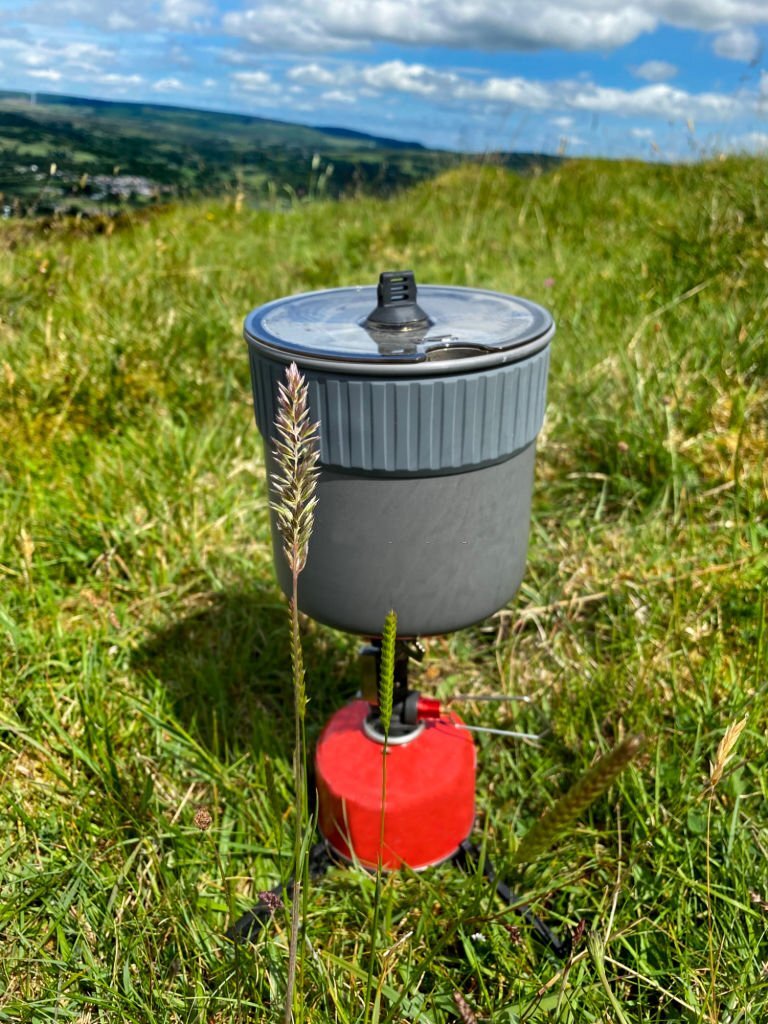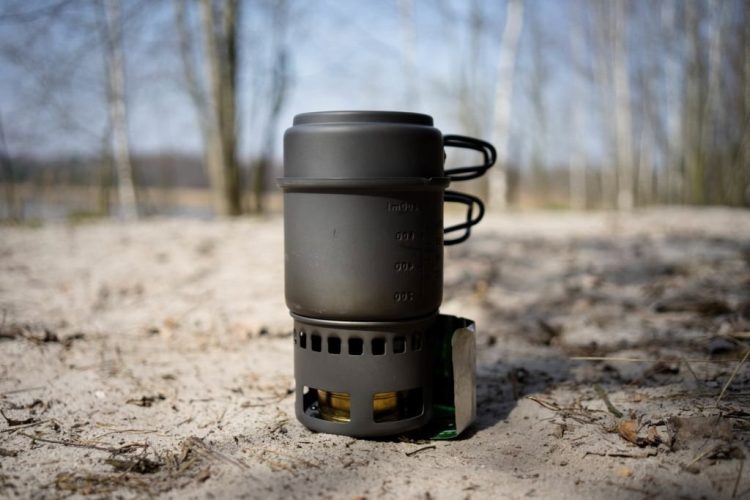Portable stoves are designed specifically for camping and are usually fueled by propane, butane, or white gas. They come in a variety of sizes and styles, from small backpacking stoves to larger, multi-burner stoves for group cooking.
If you’re planning a camping trip and need to bring a portable stove with you. These are lightweight and compact stoves and can be small enough to fit in your pocket especially if you are planning to get a backpack camping stove.
Isn’t it something very amazing and handy? We have organized this article so that you have enough information regarding camping portable stoves.
Also, when choosing a portable stove for your camping trip, consider factors such as the size and weight of the stove, the type of fuel it uses, and the cooking power you need.
You should also make sure to follow all safety guidelines when using your stove, such as keeping it away from flammable materials and making sure it is properly ventilated.
Let’s now jump into some important details regarding portable camping stoves.
Advantages of a Lightweight or Portable Stove?
Here are some of the benefits to consider:
Convenient to use
Portable stoves are designed to be lightweight and easy to carry, making them convenient for camping trips.

They can be easily packed and transported to the campsite, and they don’t require much space for storage.
Safe and versatile
Portable stoves are typically designed with safety features that prevent accidents from occurring.
For example, many stoves have automatic shut-off valves that will turn the stove off if it overheats or if the flame goes out.
In addition to this, they can be used to cook a wide variety of foods, from simple meals like hot dogs and hamburgers to more complex dishes like stews and soups.
This makes them a versatile option for camping trips where you want to prepare your own meals.
Environment friendly
Portable stoves are generally considered to be more environmentally friendly than traditional campfires because they produce less smoke and ash.
On the other hand, portable camping stoves have also some drawbacks that include:
Fuel availability
Portable stoves often require specific types of fuel, such as propane or butane, which may not be readily available in remote areas. If you run out of fuel, you may not be able to easily replace it.
Maintenance
Portable stoves require regular cleaning and maintenance to ensure they function properly. If you’re not comfortable or experienced with this type of maintenance, it can be a hassle.
Safety measures
Portable stoves can pose safety risks, such as fire hazards or carbon monoxide poisoning if not used properly or in poorly ventilated areas. It’s important to follow manufacturer instructions and take necessary precautions to prevent accidents.
Good to Know!!!
How long a small camping stove does last?
The lifespan of a camping stove depends on a variety of factors, such as the frequency of use, the type of fuel it uses, and how well it’s maintained.
Generally, a high-quality camping stove can last for many years with proper care and maintenance.
You must keep in mind that if you’re using a camping stove that runs on liquid fuel, such as white gas or kerosene, it may require more maintenance and have a shorter lifespan than a stove that runs on propane or butane.
Also, a well-made camping stove with durable materials may last longer than a cheaper, flimsier model.
However, it is obvious that a camping stove that is used frequently may wear out faster than one that is only used occasionally.
In addition to this, regular cleaning and maintenance can help extend the lifespan of a camping stove. You must understand that neglecting to clean or repair the stove can lead to damage or malfunction.
Factors That Influence the Life Span of Your Camping Stove
Good maintenance
Regular cleaning and maintenance can help extend the lifespan of your camping stove. You must clean the stove after each use, and periodically inspect it for signs of wear or damage.
It is best to replace any worn or damaged parts as needed.
Storage of stove
When not in use, store your camping stove in a dry, cool place, away from direct sunlight and other heat sources. This can help prevent damage to the stove’s components and extend its lifespan.
Correct use and right fuel
For increasing the lifespan of your portable stove you must follow the manufacturer’s instructions and guidelines for using your camping stove.
This can help prevent damage to the stove and ensure it functions properly. Also, use the appropriate fuel for your stove because using the wrong fuel can damage the stove or cause it to malfunction.
Invest in quality
Always invest in a high-quality camping stove that is built to last. While this may require a higher upfront cost, it can save you money in the long run by avoiding the need to frequently replace a cheaper, less durable stove.
Is it safe to use a small camping stove inside your tent?
No, it is not safe to use a small camping stove inside your tent. Portable stoves that use fuel such as propane or butane can produce carbon monoxide gas when they burn, which can be deadly in enclosed spaces with poor ventilation.
The production of carbon monoxide inside your tent can cause symptoms such as headaches, dizziness, nausea, and even death.
In addition to the risk of carbon monoxide poisoning, using a stove inside a tent can also increase the risk of fire or burns.
If the stove tips over or comes into contact with flammable materials, it can quickly ignite and cause a dangerous fire.
To avoid these risks, always use your camping stove outside in a well-ventilated area. It is advisable to set up the stove on a stable surface away from flammable materials and keep a fire extinguisher or water nearby in case of an emergency.
Additionally, always follow the manufacturer’s instructions and safety guidelines when using your camping stove.
The Final Lines
Overall, using a portable stove on a camping trip is a great way to enjoy the outdoors while still having the comfort and convenience of a kitchen. However, you must keep in mind all the precautions to avoid any mishap.

Hi, I’m Masab Jamal, the founder and head editor of this blog. I love to spend most of my time in the wilderness. Apart from camping and outdoor life, I’m a full time blogger.


What an insightful article! Your ability to break down complex topics into easily understandable points is truly commendable. I appreciate the thorough research and the engaging writing style that keeps readers hooked from start to finish. For anyone who found this piece as fascinating as I did and is eager to dive deeper into related subjects, This site offers a wealth of additional information and resources that perfectly complement the themes discussed here. Thank you for sharing your knowledge and providing such valuable content. I look forward to reading more of your work in the future!